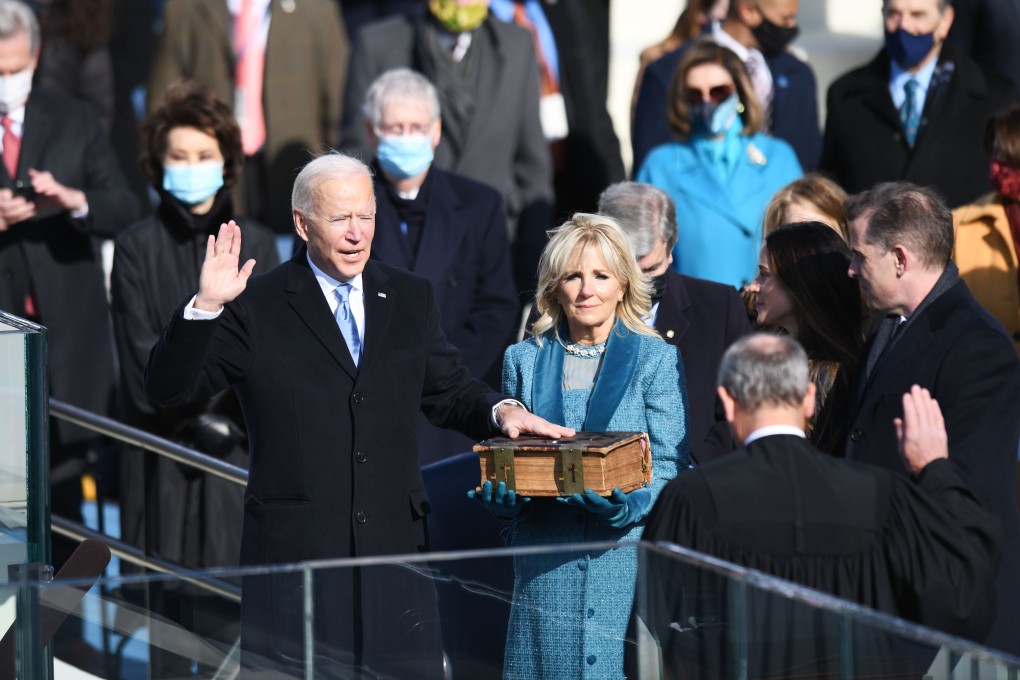Advertisement
Biden stirs ‘optimism and hope’ in Asia, with Korean and Singaporean leaders singing his praises
- The new US president’s inaugural speech and executive actions to rejoin the WHO and Paris Agreement won plaudits throughout the region
- South Korea’s Moon Jae-in hailed the dawn of a ‘new beginning’ for the US, while analysts said Biden was likely to pay greater heed to Asia’s hopes
Reading Time:5 minutes
Why you can trust SCMP
6

US President Joe Biden’s appeal to Americans in his inauguration speech to end their “uncivil war” of political division had a domestic focus, but observers say his inclusive message and even-tempered tones will have deep resonance in Asia – where leaders are eager to quickly put the chaos of the last four years behind them.
That sense of relief about Biden’s succession of his mercurial predecessor, Donald Trump, was evident in social media messages posted by regional leaders after the one-of-a-kind, socially distanced ceremony in Washington on Wednesday.
The upbeat global mood should grant Biden a honeymoon period as he seeks to repair Washington’s damaged image in the coming weeks and months, observers said, noting that significant hurdles remained for the new president given the disparate expectations of his administration from countries around the world.
Biden’s inaugural speech and immediate actions after taking office – he signed executive orders for the US to rejoin the World Health Organization and to bring it back into the fold of the landmark climate accord known as the Paris Agreement – were widely lauded throughout Asia.
Advertisement
Much of the congratulatory messages from Asia-Pacific leaders, from President Joko Widodo of Indonesia to Indian Prime Minister Narendra Modi and Australian Prime Minister Scott Morrison, centred on strengthening ties with Washington.
Nydia Ngiow, a Singapore-based senior director with the BowerGroupAsia political consultancy, said Biden had on day one of his presidency given rise to “cautious optimism and hope”.
Advertisement
“This is evidenced by messages from world leaders looking towards reconnecting and welcoming a partner back to the fold,” Ngiow said.
Advertisement
Select Voice
Select Speed
1.00x